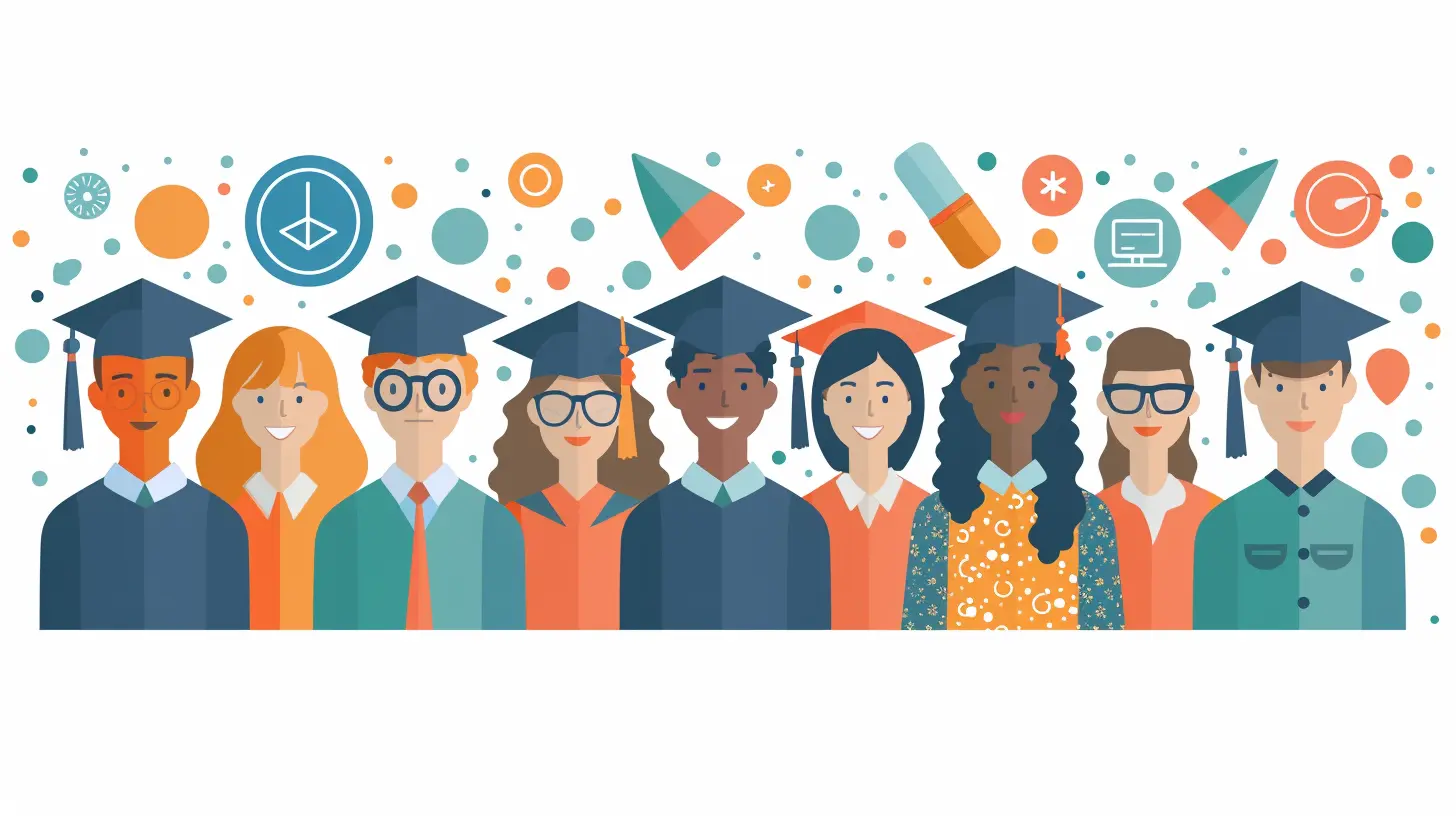Preparing for the Job Market: Career Services in College
12 June 2025
So, you’re in college trying to balance classes, late-night study sessions, a part-time job, and maybe even a social life. But amidst all that chaos, have you started thinking about what happens after graduation? That magic moment when you toss your cap in the air and step into the “real world”?
Spoiler alert: It comes faster than you think.
And when it does, you’ll want to be ready—not just with a shiny degree, but with real-world skills, experience, and a game plan. That’s where your college’s career services come into play. They’re like your backstage crew, helping you rehearse, fine-tune, and eventually rock your job market debut.
Let’s break it all down into practical steps and show you how to squeeze every ounce of value from your campus career center.
Why Career Services Matter (More Than You Think)
If you think career services are just about fixing your resume or organizing the occasional job fair, think again. These folks are your secret weapons in the job hunt. Think of them like personal trainers—but for your career instead of your abs.They can help you:
- Find internships that give you hands-on experience.
- Craft killer resumes and cover letters.
- Practice interviews until you're cool as a cucumber.
- Build a LinkedIn profile that actually gets noticed.
- Connect with alumni and employers ready to hire.
And that’s just the beginning.
Start Early, Win Big: When to Visit Career Services
Most students wait until senior year to sprint into the career office in full panic mode. Big mistake.Career development isn’t a last-minute cram session. It’s more like training for a marathon. The earlier you start, the better prepared you’ll be.
Here’s a little roadmap:
- Freshman Year: Just get acquainted. Attend an info session, take a career assessment test, and explore potential majors.
- Sophomore Year: Start building a resume, land a part-time or volunteer role, and attend industry panels.
- Junior Year: Go after internships, attend job fairs, and network like a pro.
- Senior Year: Apply for full-time jobs, practice interviews, and polish your professional presence.
See? No panic required when you plan ahead.
Resume Writing: More Than Just a List
Your resume isn’t your life story. It’s your highlight reel. Career services can help you craft a resume that stands out like a neon sign in a sea of Times New Roman.Some tips they’ll probably share (and you should remember):
- Lead with action verbs like “managed,” “created,” “launched,” or “solved.”
- Tailor your resume to each job (yes, each one).
- Keep it clean—one page is golden for most new grads.
- Include results—not just duties. Think: “Increased social media engagement by 40%” instead of “Handled Instagram.”
Let your achievements do the talking.
Writing a Cover Letter Without Sounding Like a Robot
Let’s be real: Cover letters are awkward. We all hate writing them. But they’re your chance to show some personality, tell your story, and show the employer why you’re not just qualified—but excited.Your career center can give you templates, edits, and structure. But here’s what they’ll tell you in plain English:
- Start with something human. Tell them why you care.
- Don’t repeat your resume; expand on one or two key points.
- Be yourself—but still professional.
- End it strong. Ask for the interview. Be confident, not desperate.
Sound like a real person. Not ChatGPT.
The Secret Sauce: Internships and Experience
You can ace every exam, but employers want to know you can do the job. That’s where internships, co-ops, part-time jobs, and even volunteering come in.Career services have connections—companies, non-profits, startups, you name it. They often post exclusive listings you won’t find on Indeed or LinkedIn.
Internships help you:
- Test out your field before committing.
- Build your portfolio or skillset.
- Get mentorship and networking opportunities.
- Maybe even land a full-time job afterward.
And guess what? Even a summer job at the campus rec center can be a brag-worthy experience if you frame it right (managing schedules, resolving customer issues, leading team activities—it counts!).
Networking: Not Just for Business Majors
Ah, networking. That mysterious, slightly cringy word that makes introverts shudder.But here’s the thing: You don’t need to schmooze or have thousands of LinkedIn followers to build a network. Career services can show you how to grow real, meaningful connections.
They’ll help you:
- Connect with alumni in your field.
- Attend employer info sessions.
- Build an elevator pitch (a 30-second story of who you are and what you want).
- Reach out to professionals for informational interviews.
Think of networking as making friends for your future. It’s not about asking for a job; it’s about learning and growing your circle.
Practice Makes Perfect: Mock Interviews
Job interviews are like first dates. You want to impress, but also be yourself. And just like dating, being prepared = confidence.Career services offer mock interviews where you sit down with a coach and walk through real questions:
- “Tell me about yourself.”
- “What’s your greatest weakness?”
- “Why should we hire you?”
It may feel awkward at first, but trust me, it’s a game changer. Plus, they’ll give you honest feedback (the kind your friends won’t).
They might even record your session (with your permission, of course), so you can watch and improve.
Crafting a LinkedIn Profile That Actually Works
If your LinkedIn still has a selfie as your profile picture—or worse, isn’t set up yet—it's time for a glow-up.Career services can help you build a professional profile step-by-step.
Here’s what they’ll likely focus on:
- A sharp, smiling headshot (ditch the sunglasses).
- A catchy headline that’s more than just “Student.”
- A summary that tells your story.
- Keywords that match your target industry.
- Recommendations and endorsements.
It’s not just about being seen—it’s about being found.
Navigating Job Fairs Like a Pro
Job fairs can feel overwhelming. Dozens of companies, hundreds of students, and a sea of resumes.But with a little prep, you can walk in confident and walk out connected.
Before the fair:
- Research the companies attending.
- Pick 3-5 you’re really interested in.
- Dress professionally. (Yes, that means real pants.)
- Bring multiple copies of your resume.
During the fair:
- Introduce yourself clearly.
- Ask thoughtful questions.
- Take notes and collect business cards.
After the fair:
- Connect on LinkedIn.
- Send a short thank-you email (it makes a difference).
Career services will often run prep workshops just before major fairs. Go to them. They’ll give you the inside scoop.
Graduate School? They’ve Got You Covered
Not jumping into the job market right away? Maybe grad school is your path.Career services can guide you on:
- Whether grad school makes sense for your goals.
- Choosing the right programs.
- Navigating application timelines.
- Writing personal statements and statements of purpose.
- Finding scholarships and assistantships.
They aren’t just job-focused—they’re career focused. Big difference.
Career Services Are for Life (Seriously)
Here’s a little-known fact: Many colleges offer alumni career services—sometimes for free, sometimes for a small fee.So even after you've left campus, you can still get help:
- Updating your resume.
- Prepping for a mid-career change.
- Exploring new industries.
- Accessing alumni job boards.
It’s like having a professional support system you can always come back to. Don’t sleep on it.
Final Thoughts: Your Career Starts Now
You don’t need to have your whole life planned out. You don’t need to know exactly where you’ll be in five years. Heck, most of us don’t.But you do need to start. One step at a time. And your college’s career services team is there, ready to guide you, cheer you on, and open doors.
So take advantage. Schedule that first meeting. Rewrite that resume. Apply for that internship. Say yes to opportunities, even if they scare you a little.
You’ve got this.
And when graduation rolls around, you won’t just be ready—you’ll be unstoppable.
all images in this post were generated using AI tools
Category:
Higher EducationAuthor:

Bethany Hudson
Discussion
rate this article
3 comments
Giselle McDonough
Valuable insights, thank you!
June 23, 2025 at 3:33 AM

Bethany Hudson
Thank you for your kind words! I'm glad you found the insights helpful.
Marlowe Webster
This article highlights the vital role of career services in equipping students for the job market. By utilizing these resources, students can gain valuable insights, build essential skills, and establish connections with potential employers. A proactive approach to career development during college can significantly enhance future employment opportunities. Great read!
June 13, 2025 at 4:54 AM

Bethany Hudson
Thank you for your thoughtful comment! I'm glad you found the article valuable and agree on the importance of career services in helping students prepare for their future careers.
Silas Newton
Resume: now with snacks!
June 12, 2025 at 11:46 AM

Bethany Hudson
Snacks make career prep more enjoyable! Fueling up for success!



